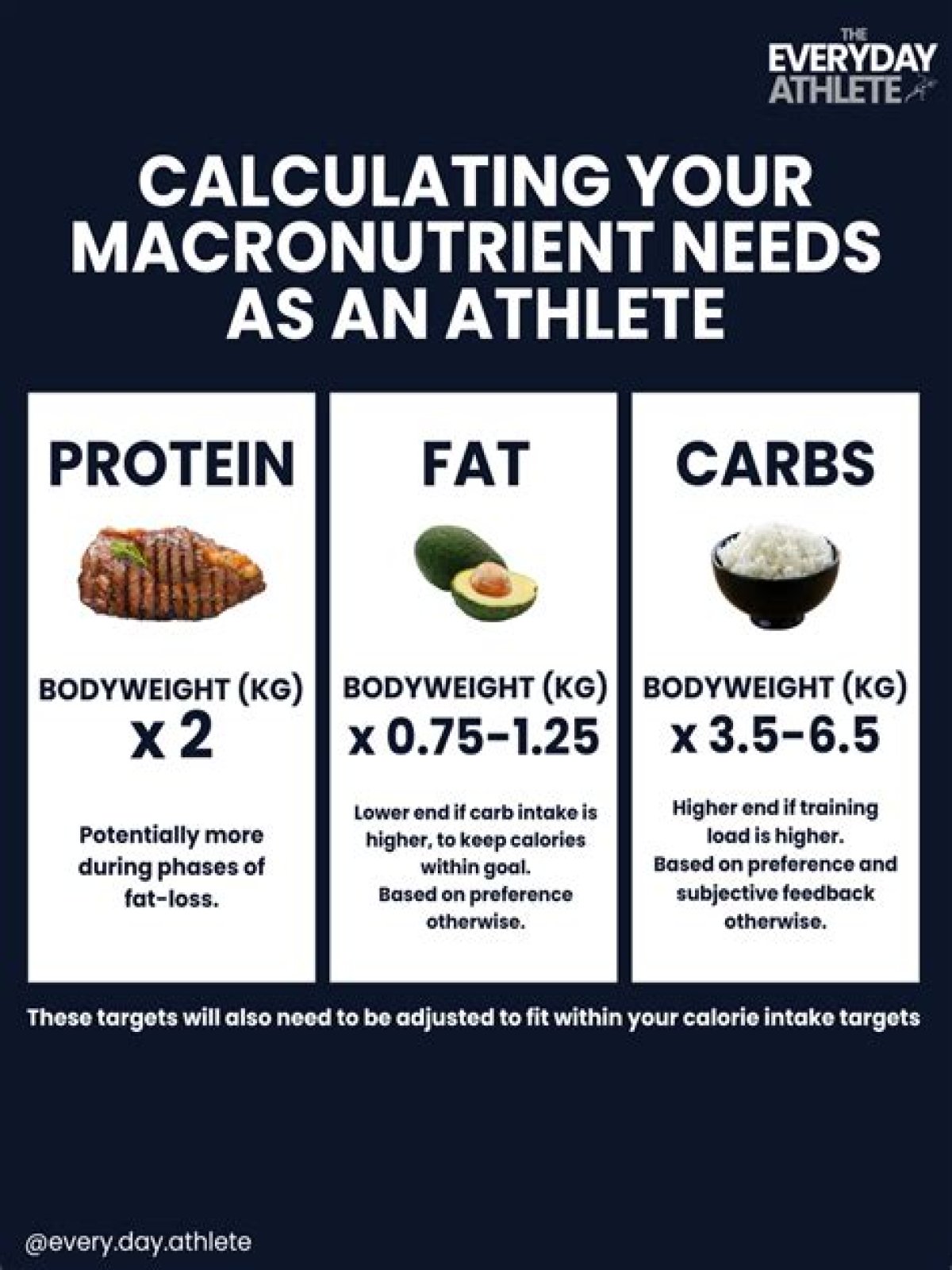Simply so, how many grams of fat should an athlete eat per day?
Fat intake for an athlete should range between 20-35% of total daily calories. Current dietary guidelines recommend that 10% of fat intake should come from monounsaturated sources, 10% from polyunsaturated sources, and no more Page 2 than 10% from saturated fat.
Similarly, is 180 grams of carbs too much? The daily recommended intake of carbohydrates for adults ranges from 45 percent to 60 percent of calories. On a 1600-calorie diet, that looks like 180 to 240 grams per day or 60 to 80 grams of carbs per meal. On a 2000-calorie diet, that looks like 225 to 325 grams of carbs per day or 75 to 108 grams of carbs per meal.
Similarly one may ask, which athletes need more carbohydrates in their diet and why?
These glucose molecules are stored in the liver and muscles to be used for fuel, especially during physical activity. Carbohydrates improve athletic performance by delaying fatigue and allowing an athlete to compete at higher levels for longer. nutrients, such as fat or muscle protein, are utilized to make energy.
Is 120 grams of carbs too much?
This number is dependent on a variety of factors, including age, fitness level, activity level and more. Most people will find theirs falls somewhere between 40-120 grams of Net Carbs per day; however, some people that have an extremely difficult time losing/maintaining weight, might find their range even higher.
What are good carbs for athletes?
- Bananas. Because they are easy to eat and digest and are loaded with fast-acting carbohydrates (one large banana provides 31 grams of carbs), bananas make the perfect pre- or post-exercise snack.
- Berries.
- Brown Rice.
- Energy Bars.
- Lowfat Yogurt.
Why do athletes need fats?
How much fat should I eat a day?
How much fat should a bodybuilder eat?
How many grams of protein should an athlete eat per day?
How much fat should be consumed during exercise?
How much fat should I eat a day to build lean muscle?
What percentage of carbs fat and protein should an athlete eat?
Do athletes need more carbohydrates?
Why are carbohydrates important for athletes quizlet?
Why do athletes eat carbohydrates before a race?
What are three quality carbs?
- Quinoa. Quinoa is a nutritious seed that has become incredibly popular in the natural health community.
- Oats. Oats may be the healthiest whole grain food on the planet.
- Buckwheat.
- Bananas.
- Sweet Potatoes.
- Beetroots.
- Oranges.
- Blueberries.
